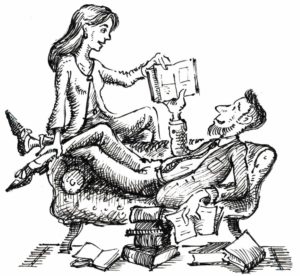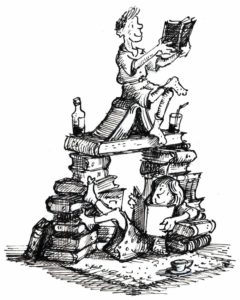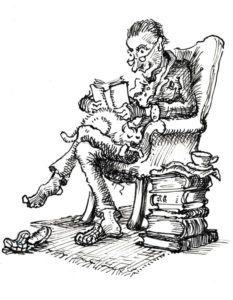1930s: The Great Depression
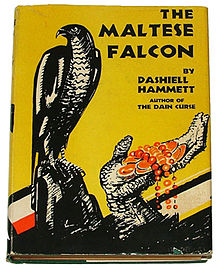 The Maltese Falcon [1930]
The Maltese Falcon [1930]
Dashiell Hammett (1894-1961)
Sam Spade, grubby private investigator in a male, chauvinist world, solves problems by violence or threats of violence, using words just as effectively.
The Good Earth [1931]
Pearl S. Buck (1892-1973)
Wang Lung and his remarkable, resourceful wife O-lan struggle against grinding poverty, famine and floods in order to survive. Set against sweeping revolutionary change in early twentieth century China, it hardly intrudes into their lives. The characters are drawn with sensitivity and reality.
Anthony Adverse [1933]
Hervey Allen (1889-1949)
A baby is abandoned, to be raised by nuns and the parish priest. After being banished from the convent for unintentionally seeing a nun without her headband, he travels widely, is captured in Texas by Mexican soldiers, but rescued by a prison visitor, whom he marries, and lives happily ever after.
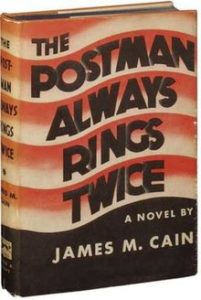 The Postman Always Rings Twice [1934]
The Postman Always Rings Twice [1934]
James M. Cain (1892-1977)
A well-written and suspenseful romp. It is the story of two amoral and unsavoury characters who get their just desserts in the end. The book was banned in Boston, due to the eroticism and violence, but it will not now shock to the same extent.
Tobacco Road [1932]
Erskine Caldwell (1903-1987)
These are the adventures of a shiftless family, who starve, fight and copulate in poverty on the Tobacco Road in Georgia. Caldwell gives the impression of absolute reality in a powerful novel of people caught up in a civilization that ignores them.
U.S.A. Trilogy [1930-36]
John Don Passos (1896-1970)
This is a trilogy containing The 42nd Parallel, 1919 and The Big Money, but each can be read alone. They are stories with a dozen characters, and chronicle the first thirty years of the American twentieth century experi-ence, not portrayed with optimism by Dos Passos. A great piece of fiction, but at its heart it is reportage.
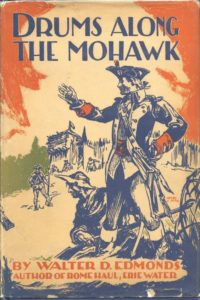 The Drums Along The Mohawk [1936]
The Drums Along The Mohawk [1936]
Walter Dumaux Edmonds (1903-1998)
Fictional Gil Martin brings his young bride Lana to isolated Deerfield, and they are set against the events of the American War of Independence. Edmonds depicts life as it was, even the weather, and uses original documents to report the atrocities and destruction.
Studs Lonigan: A Trilogy [1935]
James T. Farrell (1904-1979)
A trilogy comprising Young Lonigan (1932), The Manhood of Studs Lonigan, (1934) and Judgment Day (1935). Studs is growing up in a low-income urban environment, and just can’t get to grips with his life. This is a sociological study of Chicago in the 1920s and ‘30s.
Vein Of Iron [1935]
Ellen Glasgow (1874-1945)
This book follows the life and marriage of Ralph and Ada, their extended family, their early deprivation in the city, and final return to their land.
Lost Horizon [1933]
James Hilton (1900-1954)
From Webster’s Dictionary: Shangri-La is an “imaginary mountain land depicted as a utopia … a remote beautiful imaginary place where life approaches perfection”. Four people are kidnapped in India and taken to bolster the gene pool of people at Shangri-La. This is the story of how they accept and conform, or rebel.
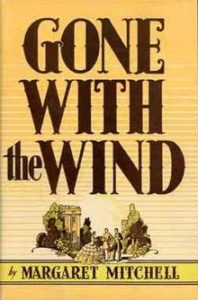 Gone With The Wind [1936]
Gone With The Wind [1936]
Margaret Mitchell (1900-1949)
With the dramatic backdrop of the American Civil War, this epic is a tale of love and loss, of a nation mortally divided and a people forever changed. It is the story of beautiful, ruthless Scarlett O’Hara and dashing soldier of fortune, Rhett Butler. Margaret Mitchell’s only novel brought her fame, the Pulitzer Prize and Hollywood’s blessing.
The Late George Apley [1937]
John P. Marquand (1893-1960)
Place: Boston. Period: 1866-1933. George Apley was a man of privilege and wealth, and his son John, is writing memoirs from family papers. The brash takeover Irish politicos at first become his enemies, but with decency and generosity he wins their sympathy.
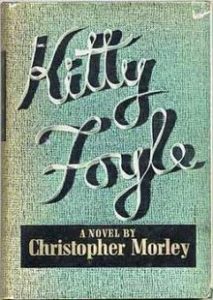 Kitty Foyle [1939]
Kitty Foyle [1939]
Christopher Morley (1890-1957)
This is life in the 1920s and ‘30s from a husbandless working woman’s point of view. Kitty Foyle drops out of college to nurse her widowed father. She eventually secures a job in a New York office during the depression.
The Yearling [1938]
Marjorie Kinnan Rawlings (1896-1953)
The Baxters are a self-sufficient family who learn to rub along and work with their hard-drinking neighbours, or succumb to the hard life and surroundings. The son, Jody, has Flag, a fawn, to tend.
Northwest Passage [1937]
Kenneth Roberts (1885-1957)
A search for a route across the land to connect the Atlantic and Pacific, led by Robert Rogers and his Rangers. Rogers accomplishes the unbelievable, but we watch his ego destroy him.
The Grapes Of Wrath [1939]
John Steinbeck (1902-1968)
When first published this book truly shocked; it remains the author’s true masterpiece. The Joad family is forced to travel west to survive, but their tale is one of false hopes and broken dreams. “I’ve done my damndest to rip a reader’s nerves to rags,” wrote Steinbeck.
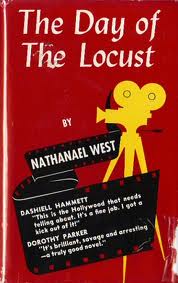 The Day Of The Locust [1939]
The Day Of The Locust [1939]
Nathaniel West (1903-1940)
A violent story, and violence triumphs. Set in Hollywood, where reality and faced are often indistinguishable, West has a cast of surreal characters, seen through the eyes of a presumably normal bookkeeper from Iowa.
The Big Sleep [1939]
Raymond Chandler (1888-1959)
Introducing the street-wise detective with a penchant for one-liners (and a strong ethical streak), the hard-drinking and cigarette smoking Philip Marlowe. No bad guys with black hats, bent police, corrupt officials, drifters, grafters, or pimps and peepers are tolerated by him. 1930s Los Angeles sizzles, with its smog, hoodlum violence and blond bimbos.


